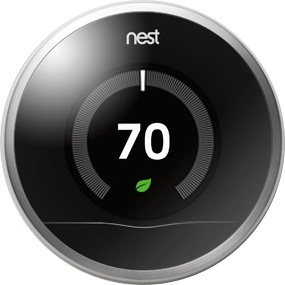The Real Reason We’re Disappointed About Google Acquiring Nest

Leave aside the privacy concerns for a moment. The issues there are real enough: The non-answers in their privacy statement leave enough room to build a data center in, and both the words and the actions of the leadership at Google can leave no doubt that they intend to push the boundary of what is creepy in pursuit of more, better data about you. They need it to target you with ads.
But that isn’t enough for disappointment. Paranoia and cynicism? Sure. But not disappointment. So why did the Internet react so strongly at the news?
Nest is in the thermostat and smoke detector business. The make money in one way: Selling you thermostats and smoke detectors. The economic incentives drive them to make better thermostats and smoke detectors. The best damn smoke detectors and thermostats we have ever seen, in fact. So good that we were willing to pay a 10x premium for what is normally a $15 forgotten-about white box. One could only imagine all the cool things that were coming – and Nest had every reason to keep making them better: To sell us more thermostats and smoke detectors.
Google is in the advertising business. They make money in one way: Selling advertisements to be shown to you. The economic incentives drive everything in their business to that end. Everything else is secondary, and must at least provide some benefit to their primary business. Android is about controlling a mobile platform so they can mine it for data and show you ads. Gmail is about mining your email for context and showing you ads. Web search is about understanding you from your web activity and showing you ads based on it. And Google has every reason to find new ways to learn more about you: To sell more advertisements.
And there’s the rub: All of us could all see the potential of Nest to make our lives better in real, concrete, visceral ways; and they had the economic incentives to make it happen. Under Google, the economic incentives have changed, and with it the goal. Instead of making great products, the goal is now to push as close to the Creepy Line as possible. It won’t start out that way, but it will end up that way. You can’t fight economics.
The products will continue to improve, of course. A secondary goal must be to make them good enough to compete in the market, but it will always be secondary. It’s easy to see how much potential has been lost, and that is ever so disappointing.
“The best minds of my generation are thinking about how to make people click ads. That sucks.” – Jeff Hammerbacher
